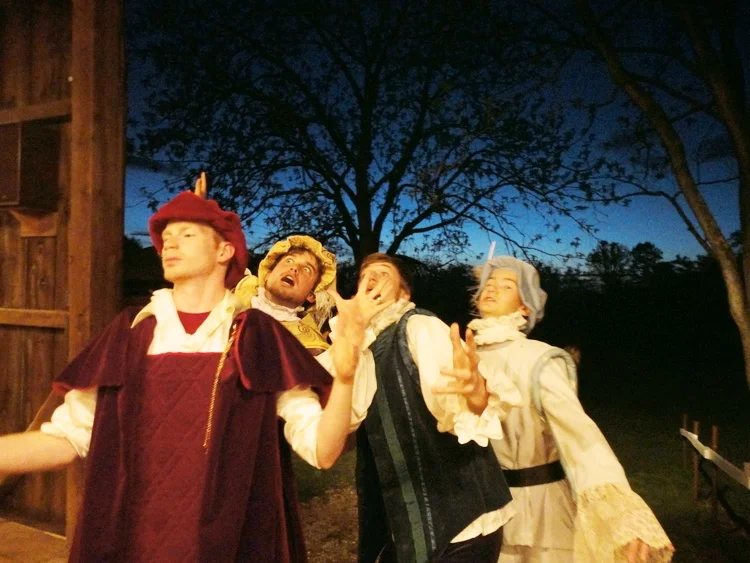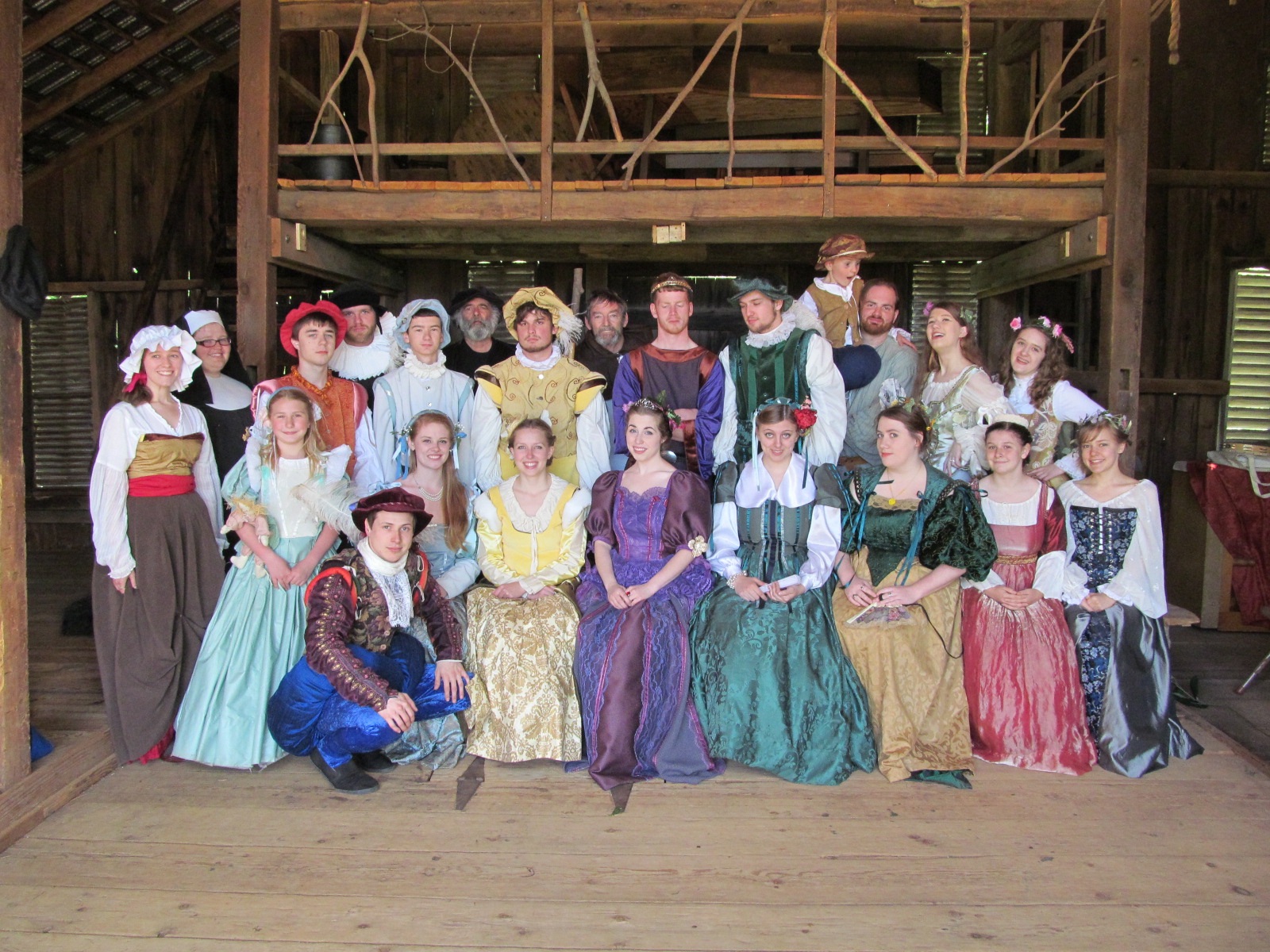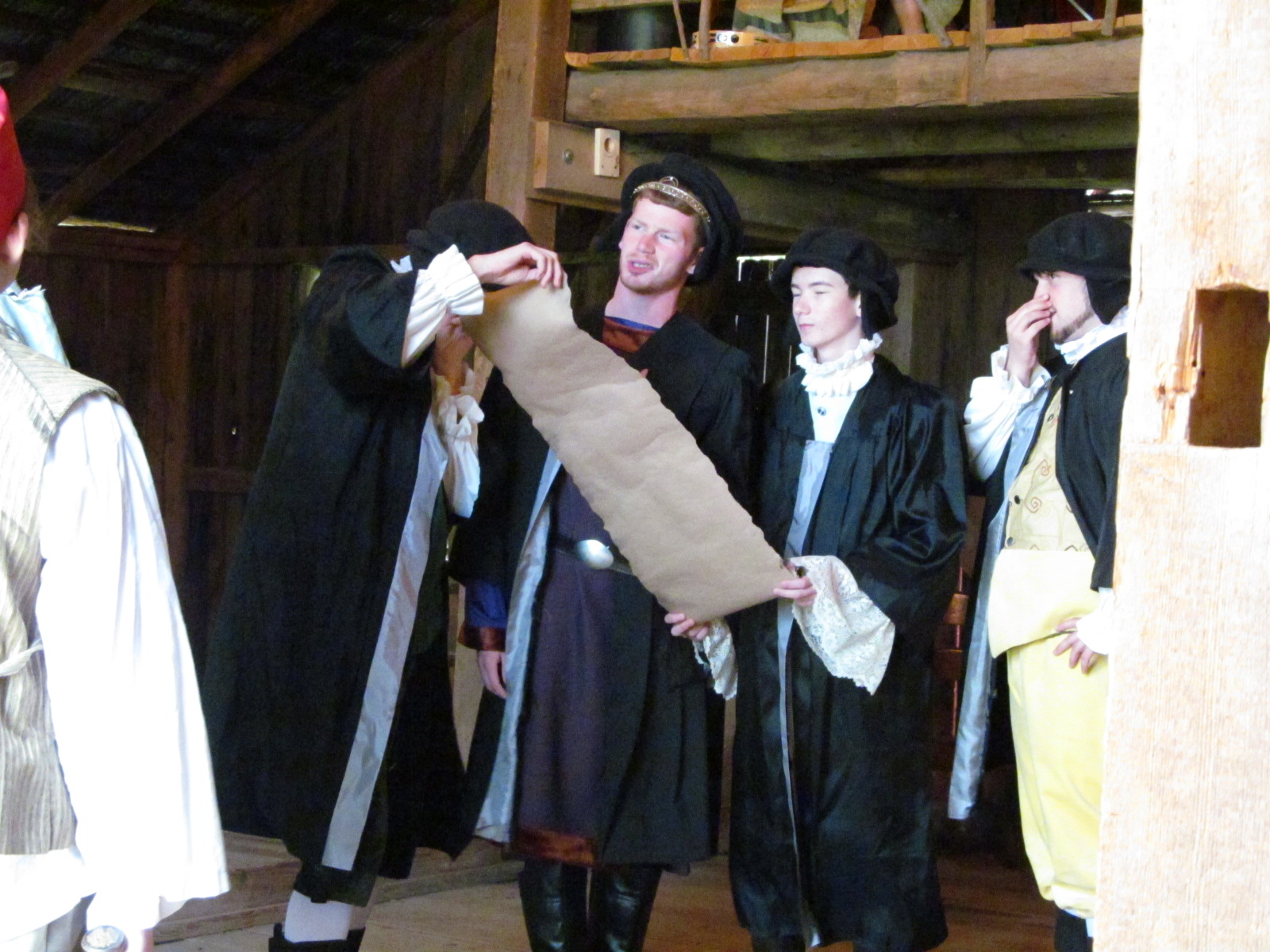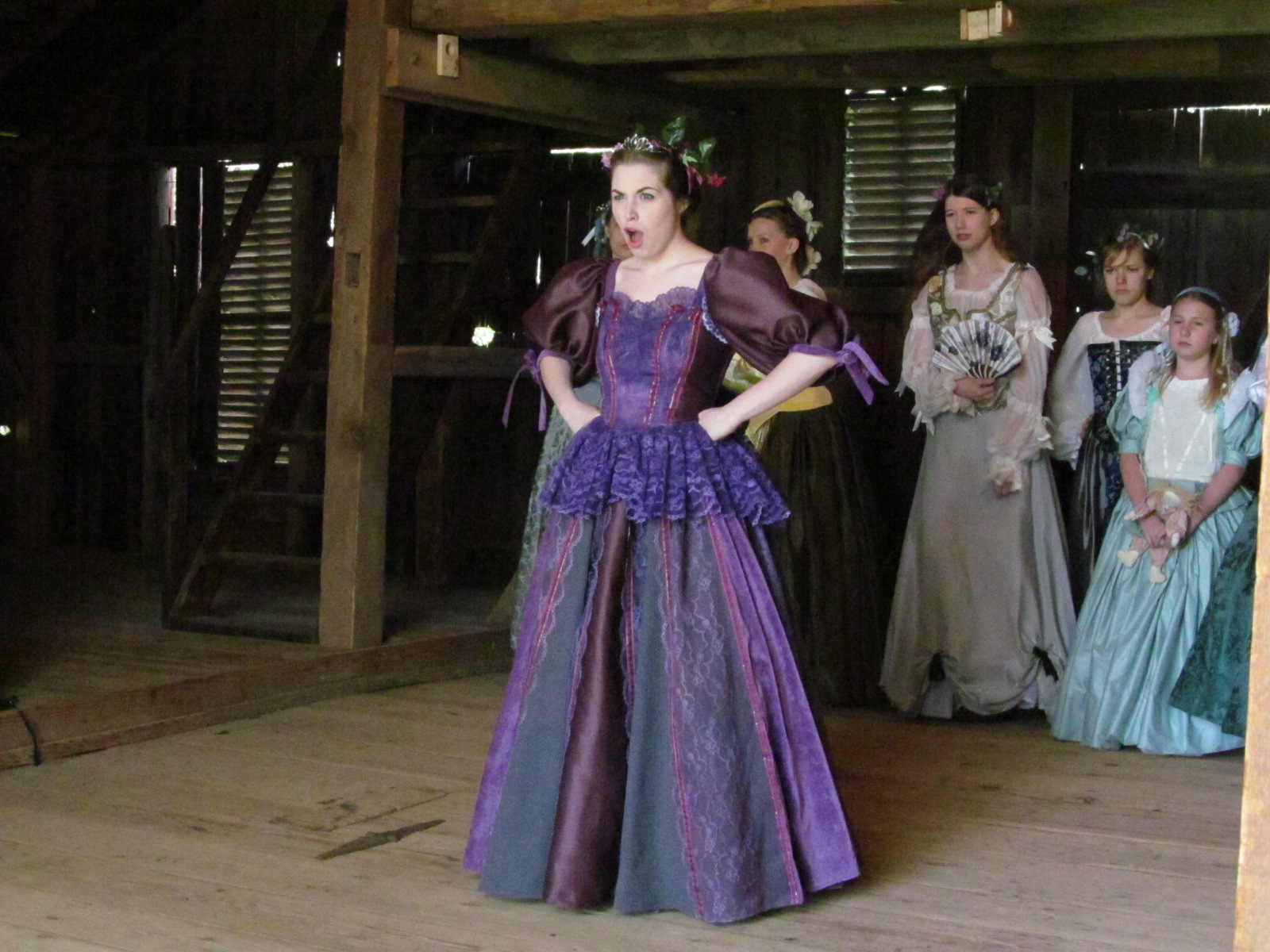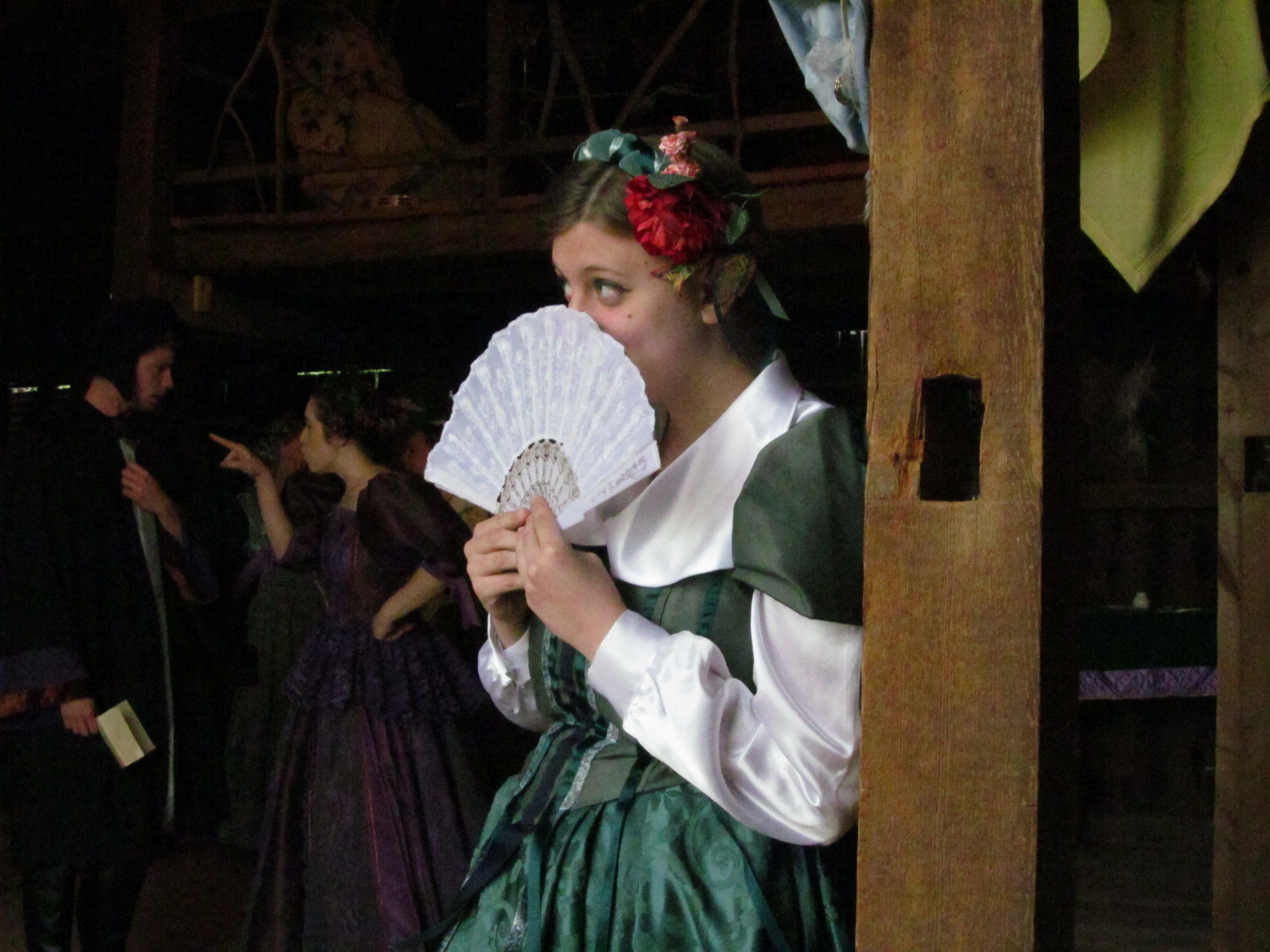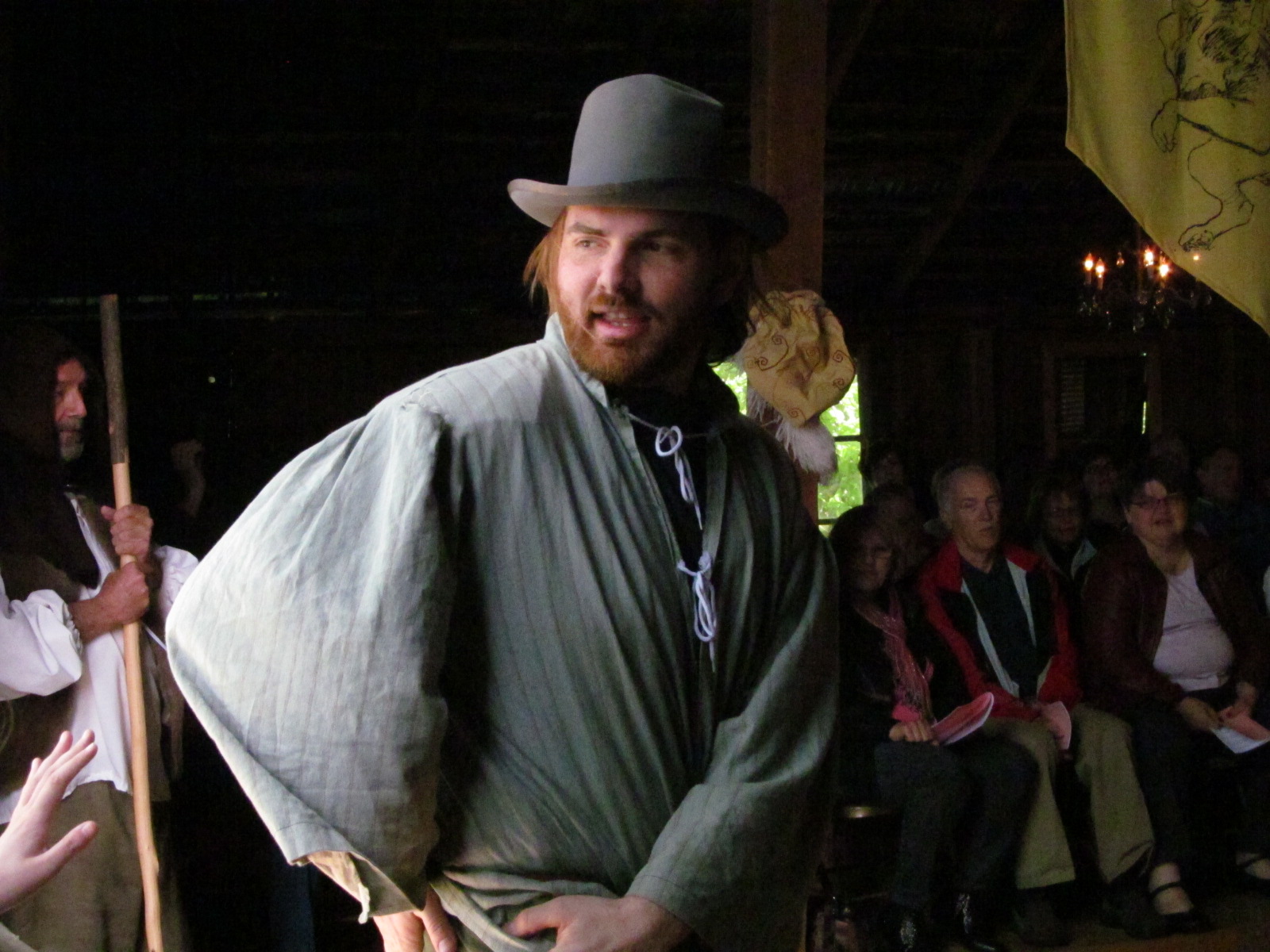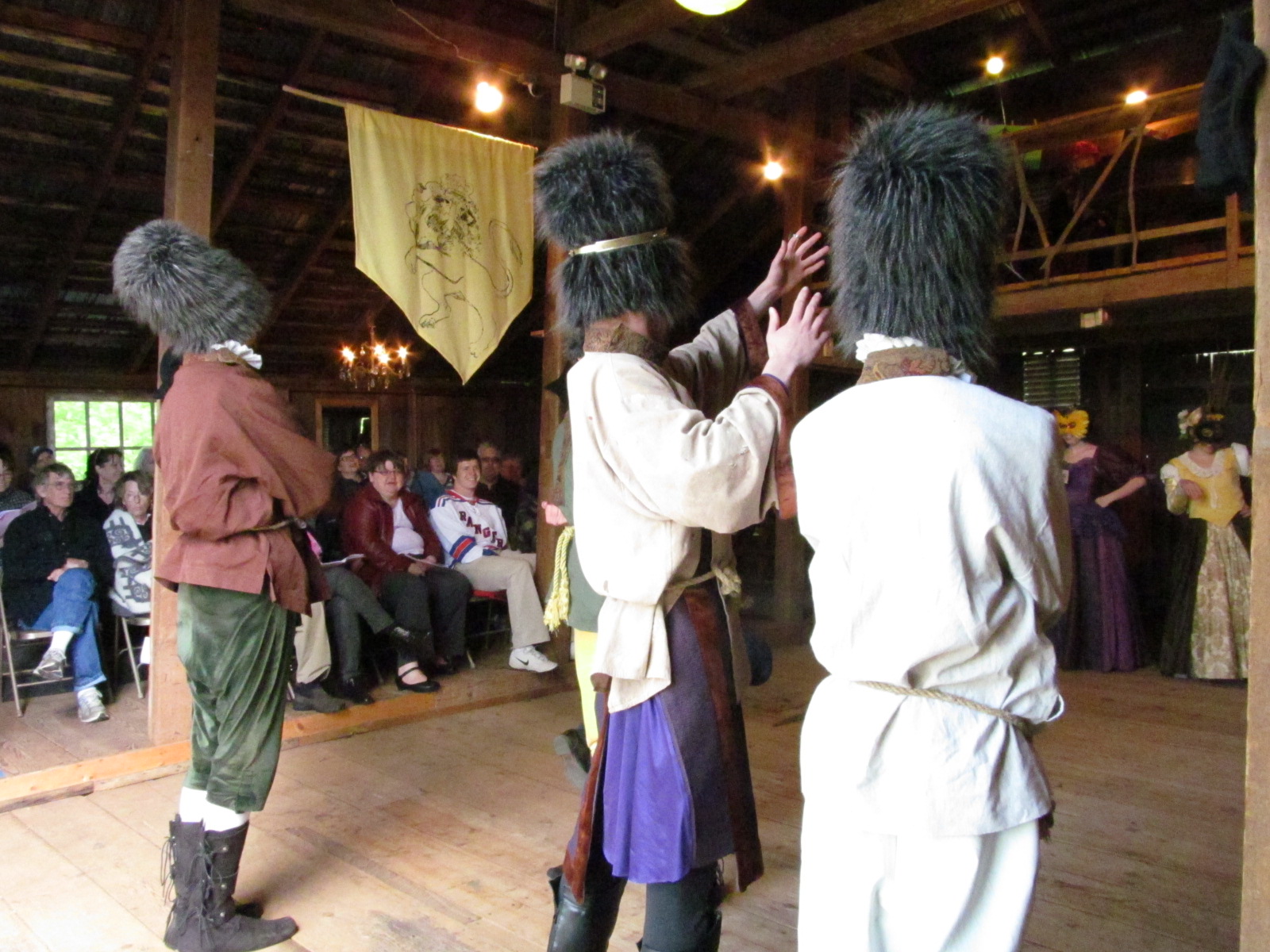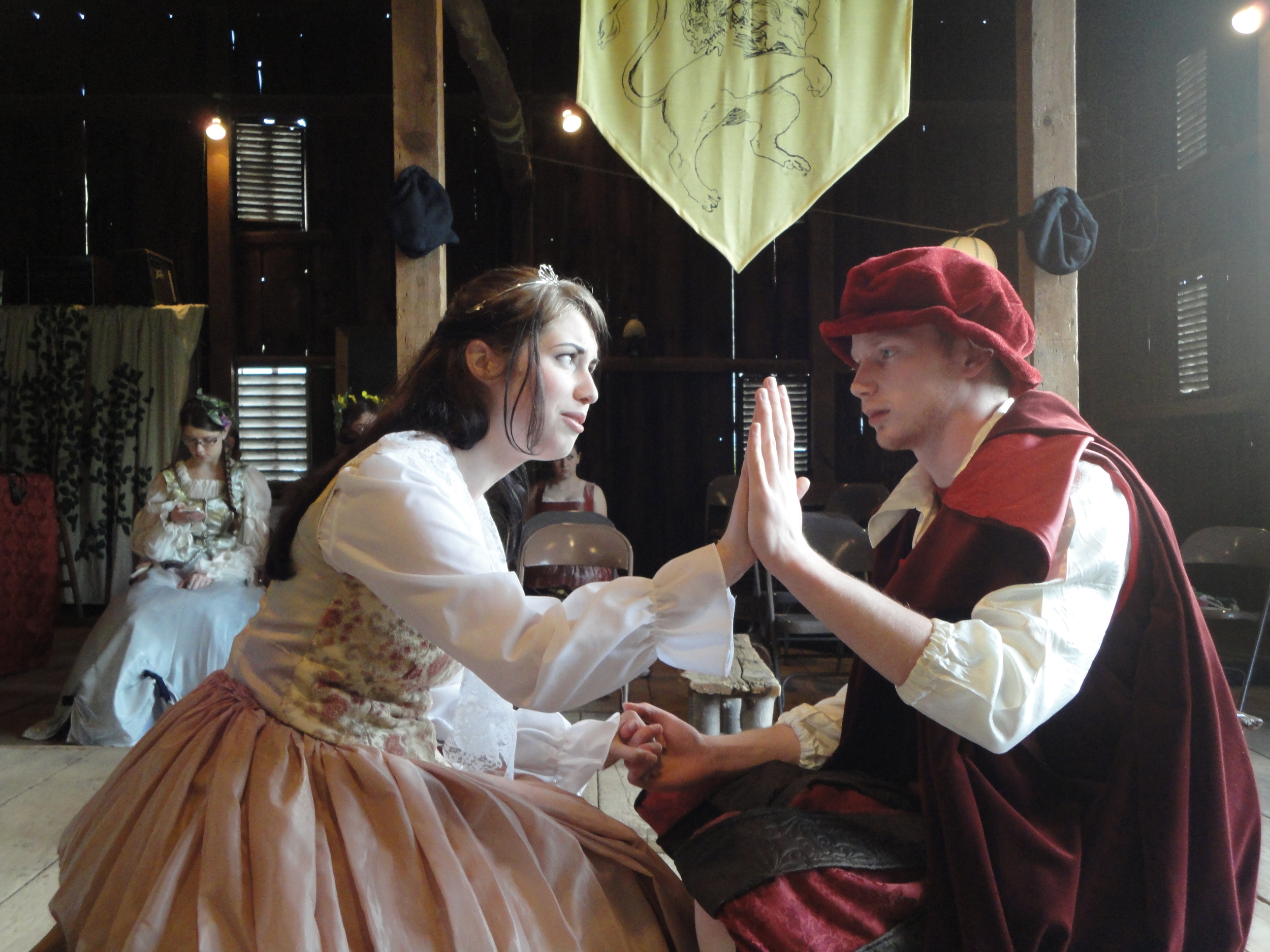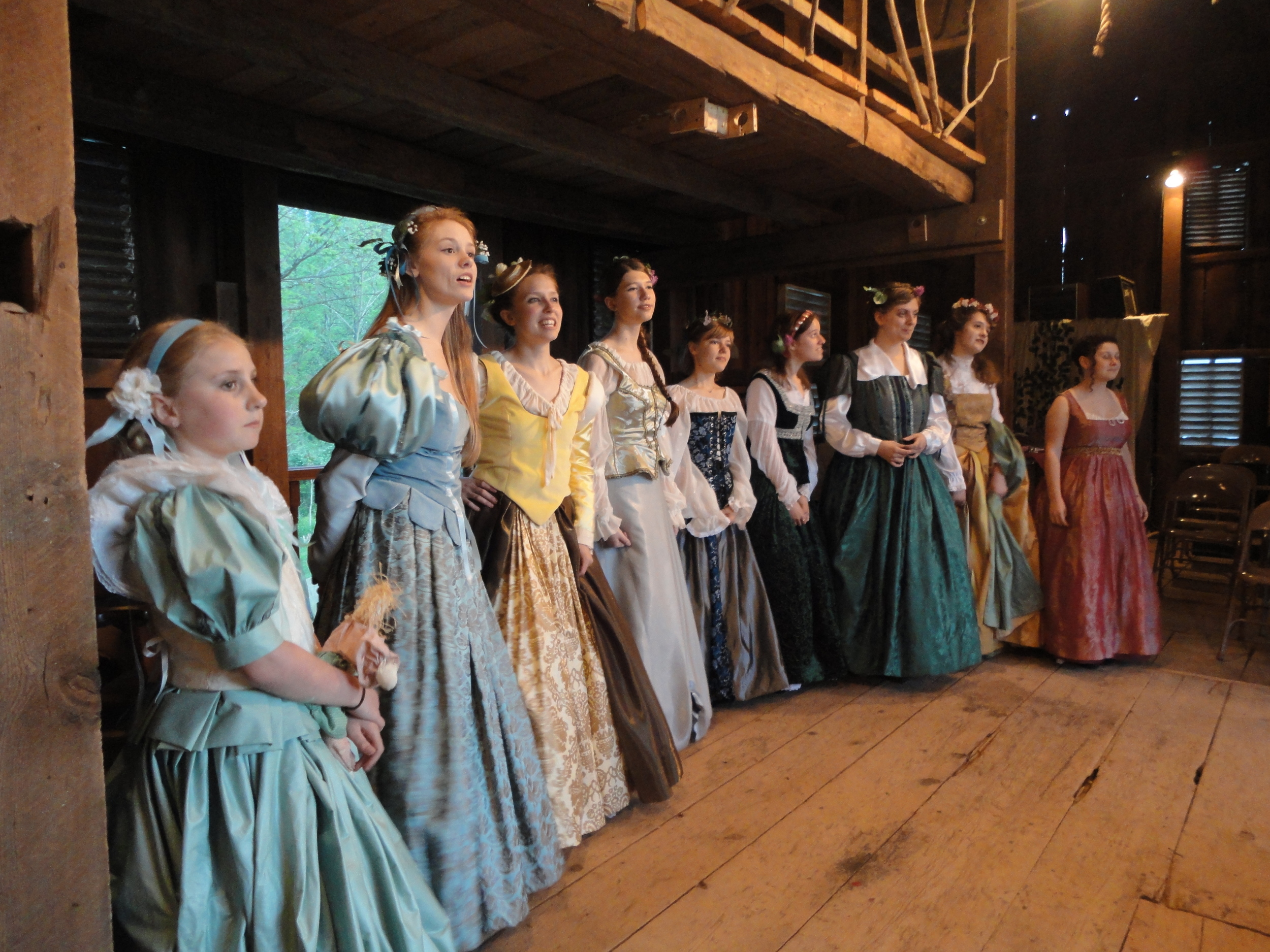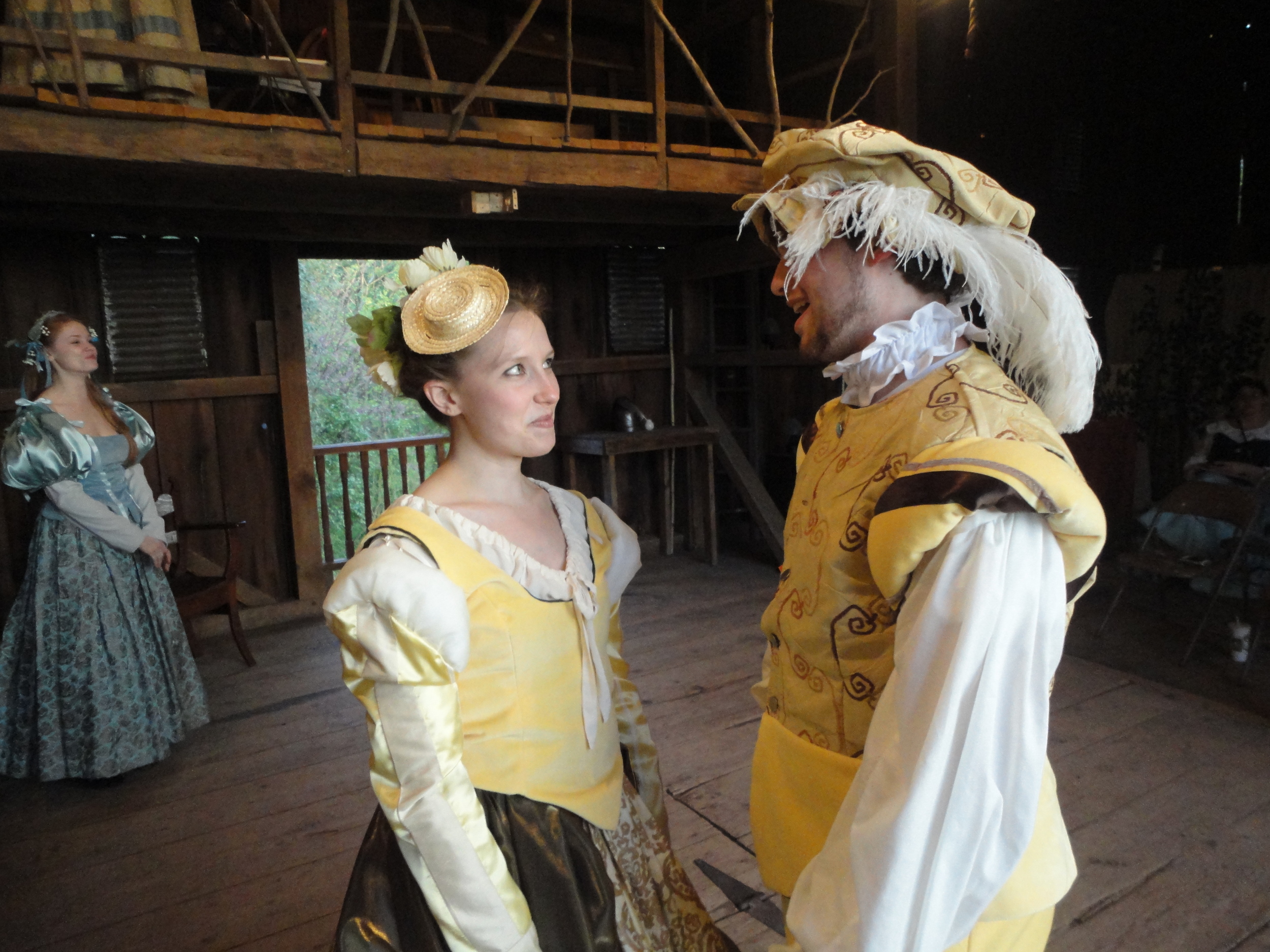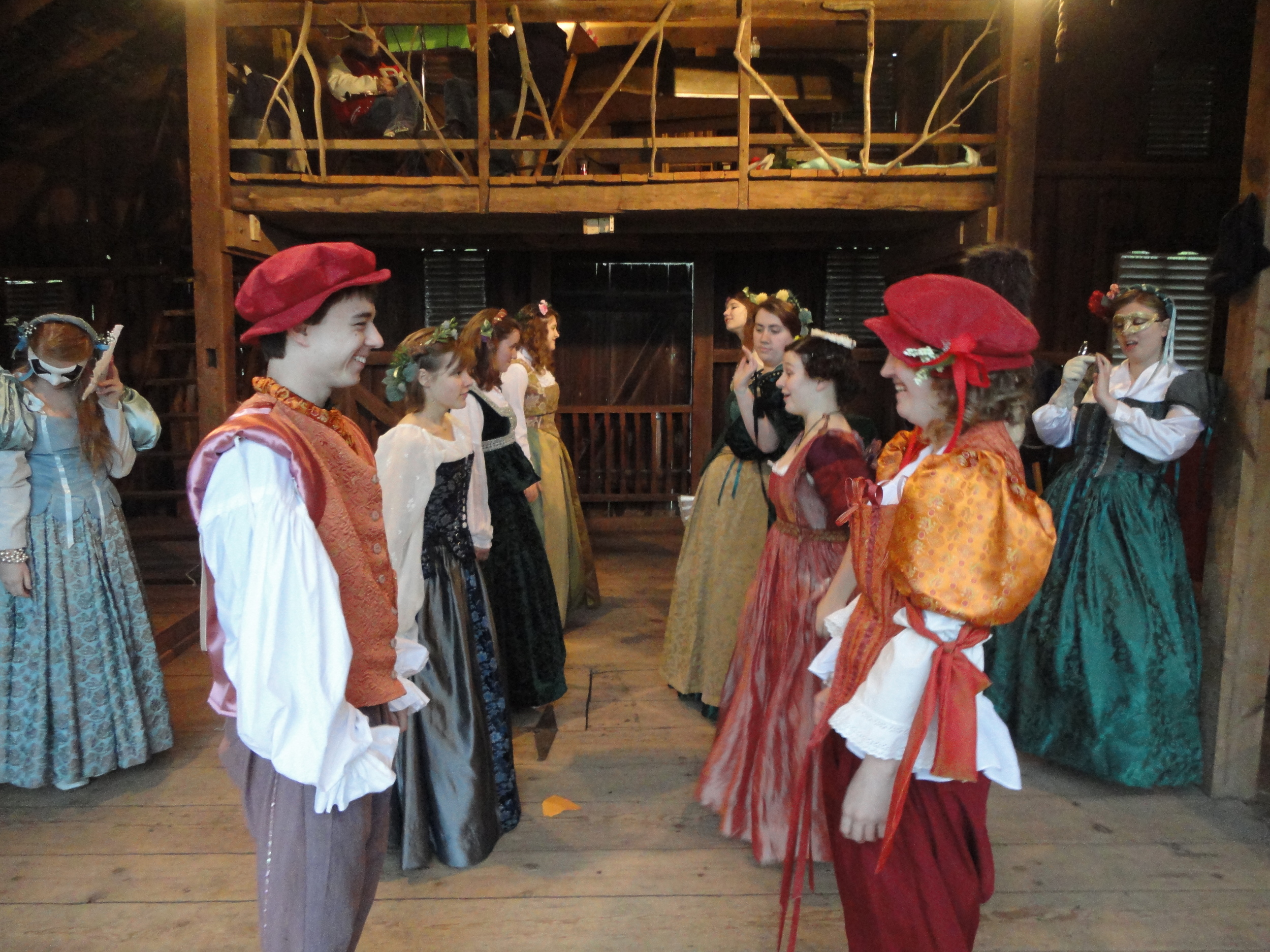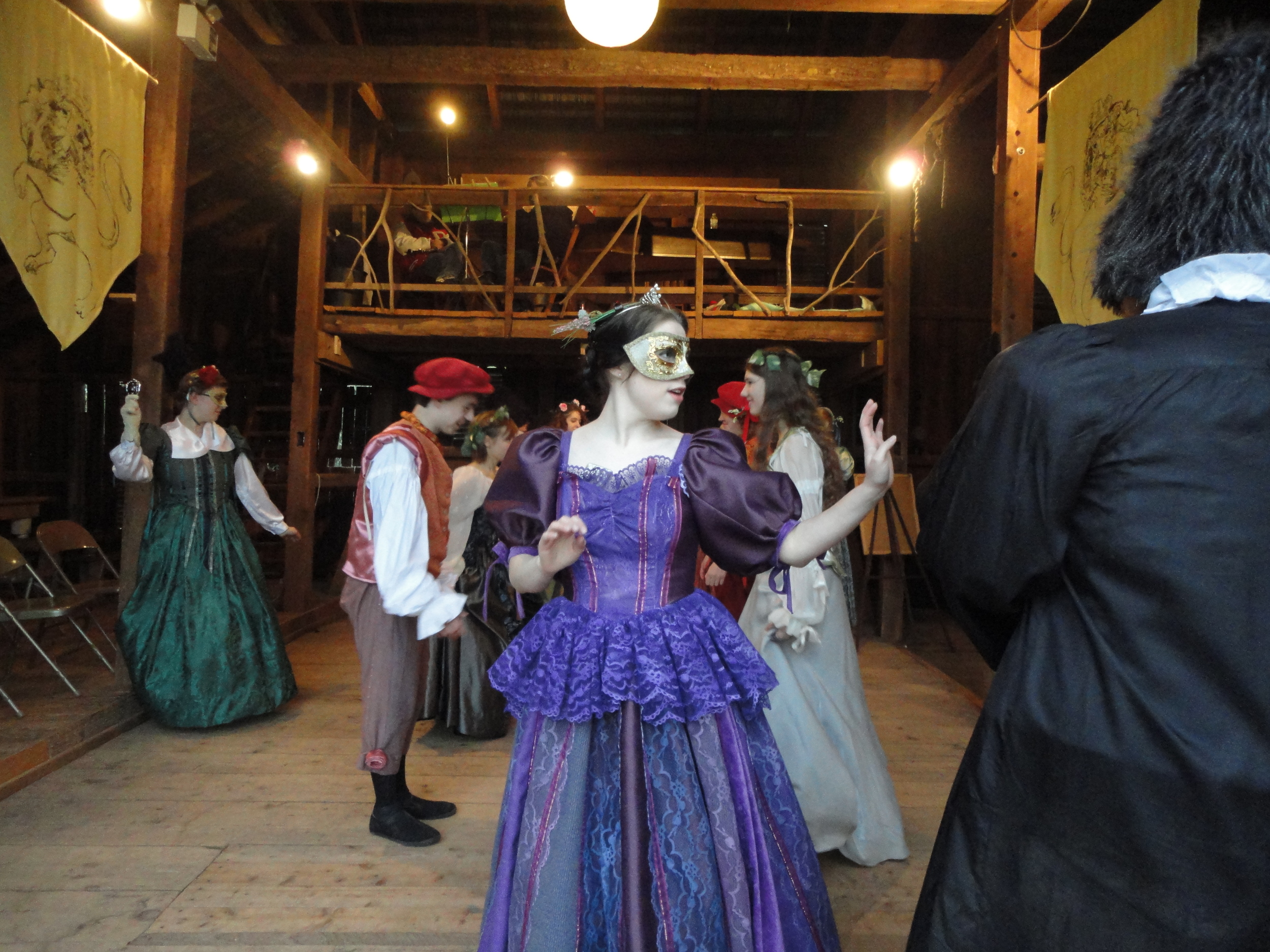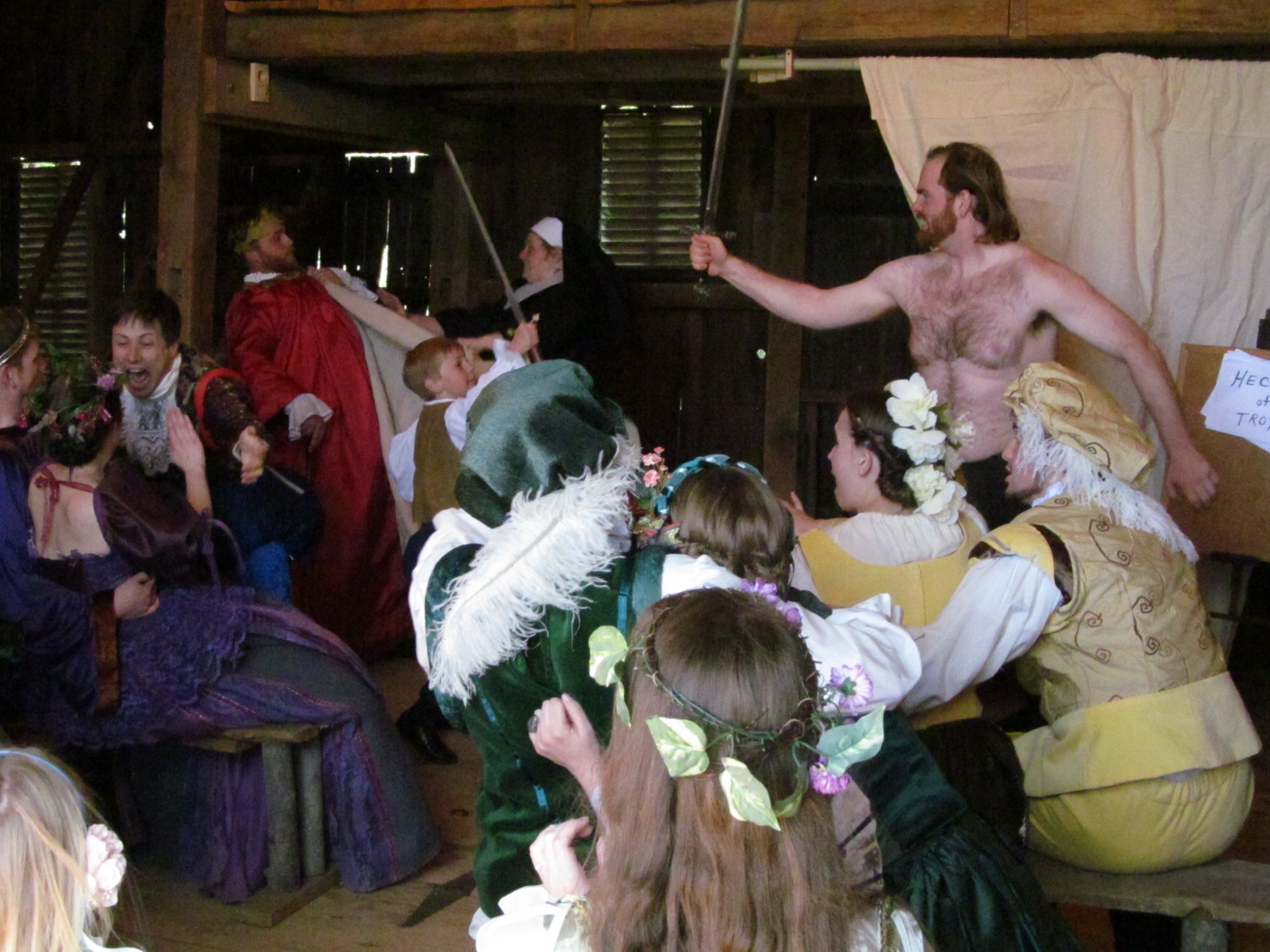LOVE'S LABOUR'S LOST
MAY 2013, DIRECTED BY WILLIAM WOLFGANG
“Love is a familiar; love is a devil:
There is no evil angel but love.”
Seeking the prestige of academic enlightenment, The King of Navarre and three of his closest friends make a pact to forswear all the pleasures of life, including falling in love, for three years of intense study. However, when the beautiful Princess of France arrives on their doorstep with an entourage of alluring ladies, Navarre's court must determine how to keep their oaths.
DIRECTOR'S NOTES
The premise of this play is fairly simple: four young men meet four young women, and they each fall in love. It sounds just like another fairy tale or Shakespeare play; but, it is not. In fact, it is very different from most other tales you will hear. While written around the same time as A Midsummer Night’s Dream, which is coming up later in our season, Love’s Labor’s Lost is anything but a dream, instead described best as reality.
The King and his men want so badly to be the envy of the world; they want so badly to be wise, famous, and intelligent that they would forsake what makes themselves human to do so. These lords represent the people in life that take themselves way too seriously, only in the end to discover their own folly. The subjects of their desire are intelligent, witty, and conniving but hopelessly immature.
Armado is a pompous Spanish soldier who views the world as though it revolves around him. When Jaquenetta comes into his life, he suddenly is at a loss on how to proceed and begins to take relationship advice from an eight-year-old. And then there is Costard; he is just a fool. Everyone knows someone like this. Holofernes and Sister Natalie are so consumed in their little world of learning and religion that they have little time to notice this colorful universe around them.
However, Love’s Labor’s Lost is not exclusively about the silly and trivial parts of life and the nutty people surrounding us. A transcendent message permeates this show, a message that is missing from all other Shakespearean comedies. King Ferdinand is not the same person at the end of the show. He no longer seeks “fame that all hunt after in their lives,” no longer does he wish for the absolutism of book learning, but instead, he prepares to find something more. Many characters in this zany menagerie discover a similar truth. However, as it often is in reality, this is not an easy lesson for our characters to learn.
“Let us once lose our oaths to find ourselves,
Or else we lose ourselves to keep our oaths.”
What is the purpose of all of these crazy and flawed characters? Why did Shakespeare throw them all into this lively world of Navarre? The most obvious answer I see is to make it as real as possible. I believe one could quickly think of individuals from personal experience that could represent each of the aforementioned characters. Shakespeare created caricatures of all types of people in this play, threw them together, mixed it up, sprinkled a little farce here and there, and called it a show. As we put this production together, we did not stop laughing, and most of all, we enjoyed bringing these realistically ridiculous people to life.
Written over four hundred years ago, still today, we can relate with every character. We can relate to their laughter, their love, and their loss. Though the trying labor of love they attempt evaporates in the end, they lose it for a genuine reason; the characters become more than their former selves. And, we all have a laugh while they do so.
- William Wolfgang, Director
“Come on, then; I will swear to study so,
To know the thing I am forbid to know.”

